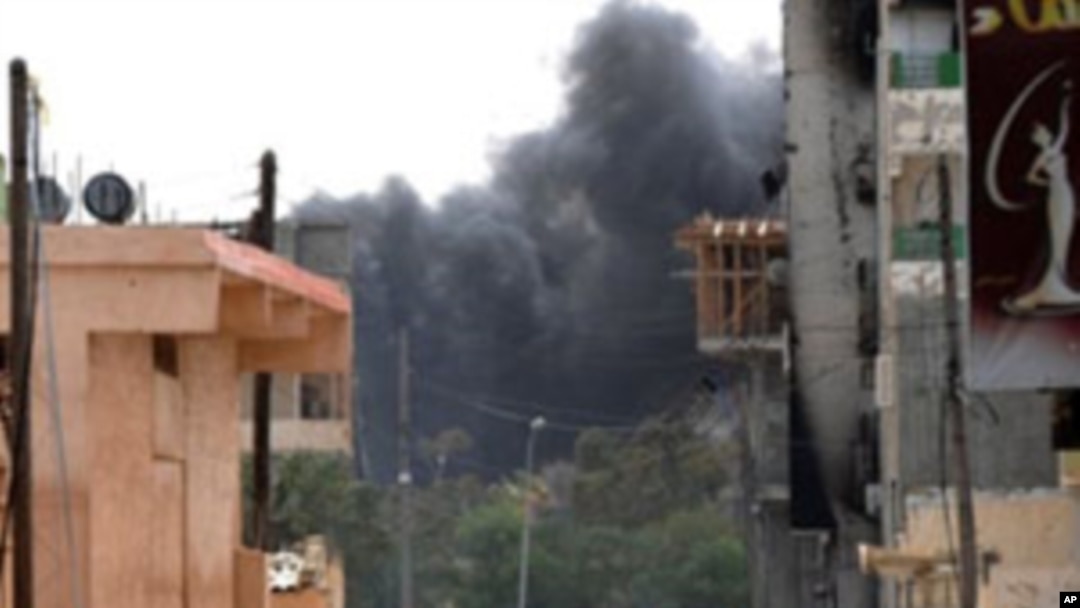|
Latest Developments A suspected NATO airstrike on Libyan leader Moammar Gadhafi's compound in the capital, Tripoli, has destroyed at least one building and wounded four people. Authorities say the wrecked building was used for ministerial and other meetings. Three Libyan state television stations briefly went off the air after the loud explosions were heard in central Tripoli soon after midnight Sunday. |
Libyan government forces are keeping pressure on the rebel-held city of Misrata after abandoning most of the positions they held in the city.
Libyan government forces shelled the besieged rebel-held port of Misrata Sunday, a day after officials signaled a change in tactics. Deputy Foreign Minister Khaled Kaim claimed the army was suspending operations in Misrata and would hand over positions to pro-Gadhafi tribesmen.
"The situation in Misrata will be eased, will be dealt with by the tribes around Misrata and the rest of Misrata’s people, not by the Libyan army, and you will see how they will be swift and quick and fast and the Libyan army will be out of the question, out of the situation in Misrata," said Kaim.
A Libyan opposition leader told Libyan rebel TV, however, that he did not think that tribes around Misrata would fight their countrymen inside the city. "Some local tribesmen," he said, "have personal ties with the Gadhafi regime, but the majority oppose him and won’t fight."
In the capital Tripoli, Gadhafi loyalists fired anti-aircraft guns into the air sporadically, amid reports of NATO airstrikes. The U.S. Defense Department announced an airstrike by a U.S. Predator drone in Libya Saturday. NATO said the unmanned aircraft destroyed a multiple rocket launcher used by pro-Gadhafi forces near Misrata.
Elsewhere in the region, tens of thousands of Yemenis continued to protest against President Ali Abdallah Saleh, a day after he accepted a Gulf Arab initiative that would eventually have him leave office.
Speaking at Yemen’s War College Sunday, President Saleh accused the opposition of trying to create chaos:
He says that the behavior of the opposition has put a stop to economic development in Yemen. He claims the opposition wants to spill blood, create a civil war, and overthrow the legal order, while he opposes violence.
Yemeni politicians and negotiators from the Gulf Cooperation Council say President Saleh has agreed to a GCC proposal for him to step down within 30 days of an accord being signed with the opposition. Saleh ally and deputy information minister Abdou Jundi says the president accepts the plan, but has some conditions:
He says President Saleh accepted the GCC plan in principle, and that this will be in accordance with the constitution, which allows the president to resign to parliament. He insists that starting a dialogue with the opposition is part of the plan.
Many protesters refuse any dialogue with the president and insist on his immediate resignation. They also object to giving the president and his family any immunity from prosecution.
Meanwhile in Syria, thousands of mourners laid to rest protesters shot dead Saturday near the southern city of Deraa. They chanted slogans against the government and against President Bashar al-Assad. Protests were reported in at least six other towns and cities, despite widespread arrests of opposition activists by the government.


